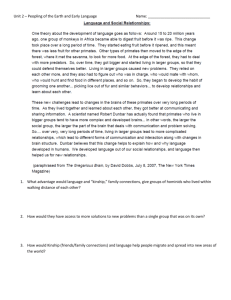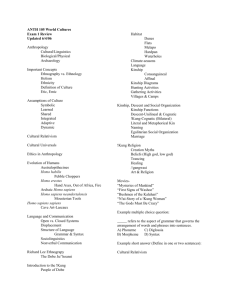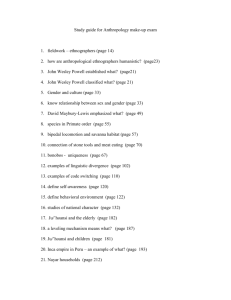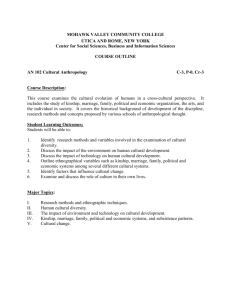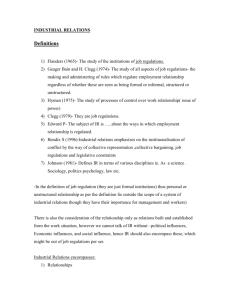Intro to Anthro
advertisement
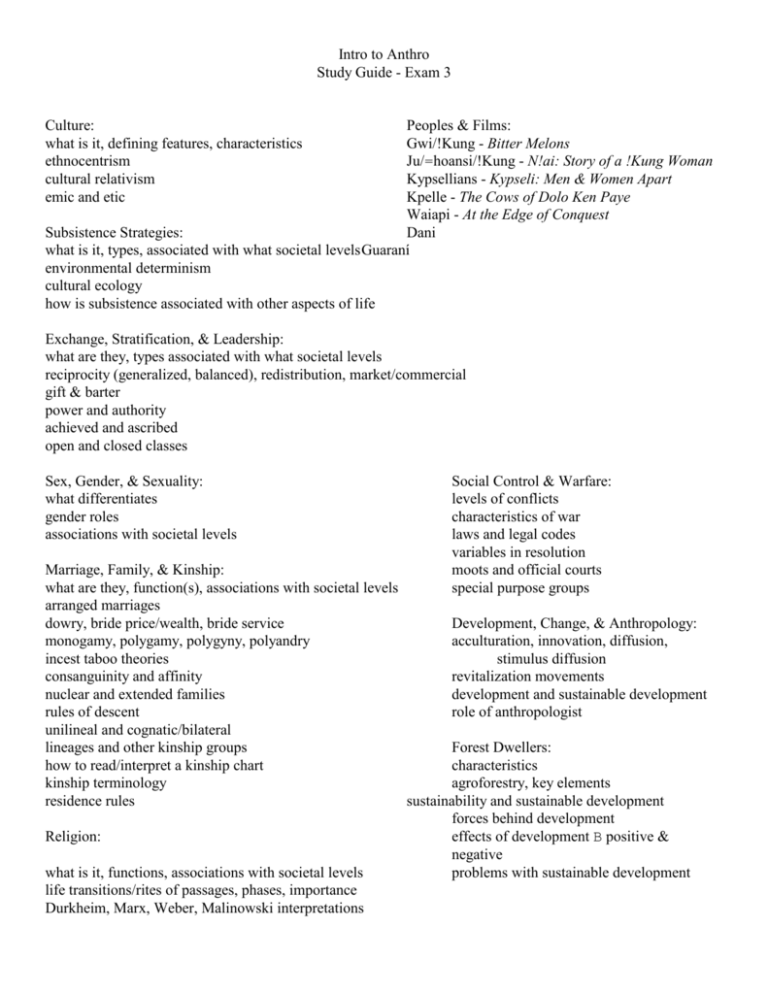
Intro to Anthro Study Guide - Exam 3 Culture: what is it, defining features, characteristics ethnocentrism cultural relativism emic and etic Peoples & Films: Gwi/!Kung - Bitter Melons Ju/=hoansi/!Kung - N!ai: Story of a !Kung Woman Kypsellians - Kypseli: Men & Women Apart Kpelle - The Cows of Dolo Ken Paye Waiapi - At the Edge of Conquest Subsistence Strategies: Dani what is it, types, associated with what societal levels Guaraní environmental determinism cultural ecology how is subsistence associated with other aspects of life Exchange, Stratification, & Leadership: what are they, types associated with what societal levels reciprocity (generalized, balanced), redistribution, market/commercial gift & barter power and authority achieved and ascribed open and closed classes Sex, Gender, & Sexuality: what differentiates gender roles associations with societal levels Social Control & Warfare: levels of conflicts characteristics of war laws and legal codes variables in resolution moots and official courts special purpose groups Marriage, Family, & Kinship: what are they, function(s), associations with societal levels arranged marriages dowry, bride price/wealth, bride service Development, Change, & Anthropology: monogamy, polygamy, polygyny, polyandry acculturation, innovation, diffusion, incest taboo theories stimulus diffusion consanguinity and affinity revitalization movements nuclear and extended families development and sustainable development rules of descent role of anthropologist unilineal and cognatic/bilateral lineages and other kinship groups Forest Dwellers: how to read/interpret a kinship chart characteristics kinship terminology agroforestry, key elements residence rules sustainability and sustainable development forces behind development Religion: effects of development B positive & negative what is it, functions, associations with societal levels problems with sustainable development life transitions/rites of passages, phases, importance Durkheim, Marx, Weber, Malinowski interpretations
